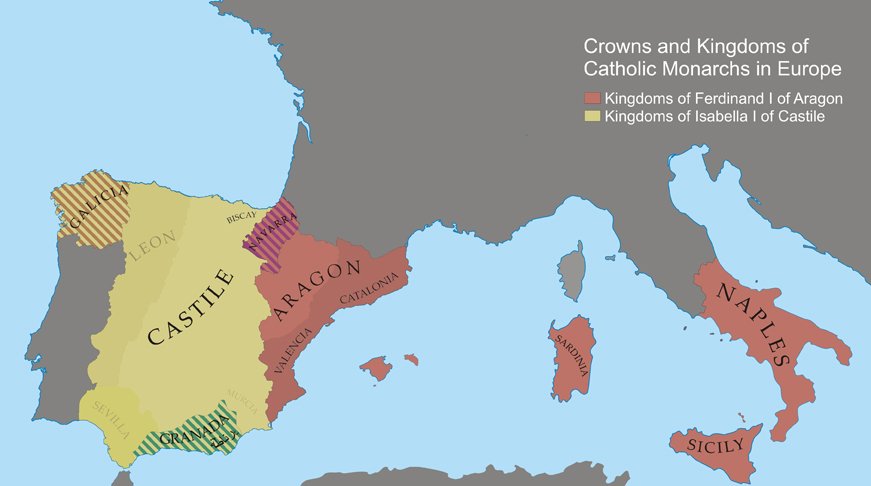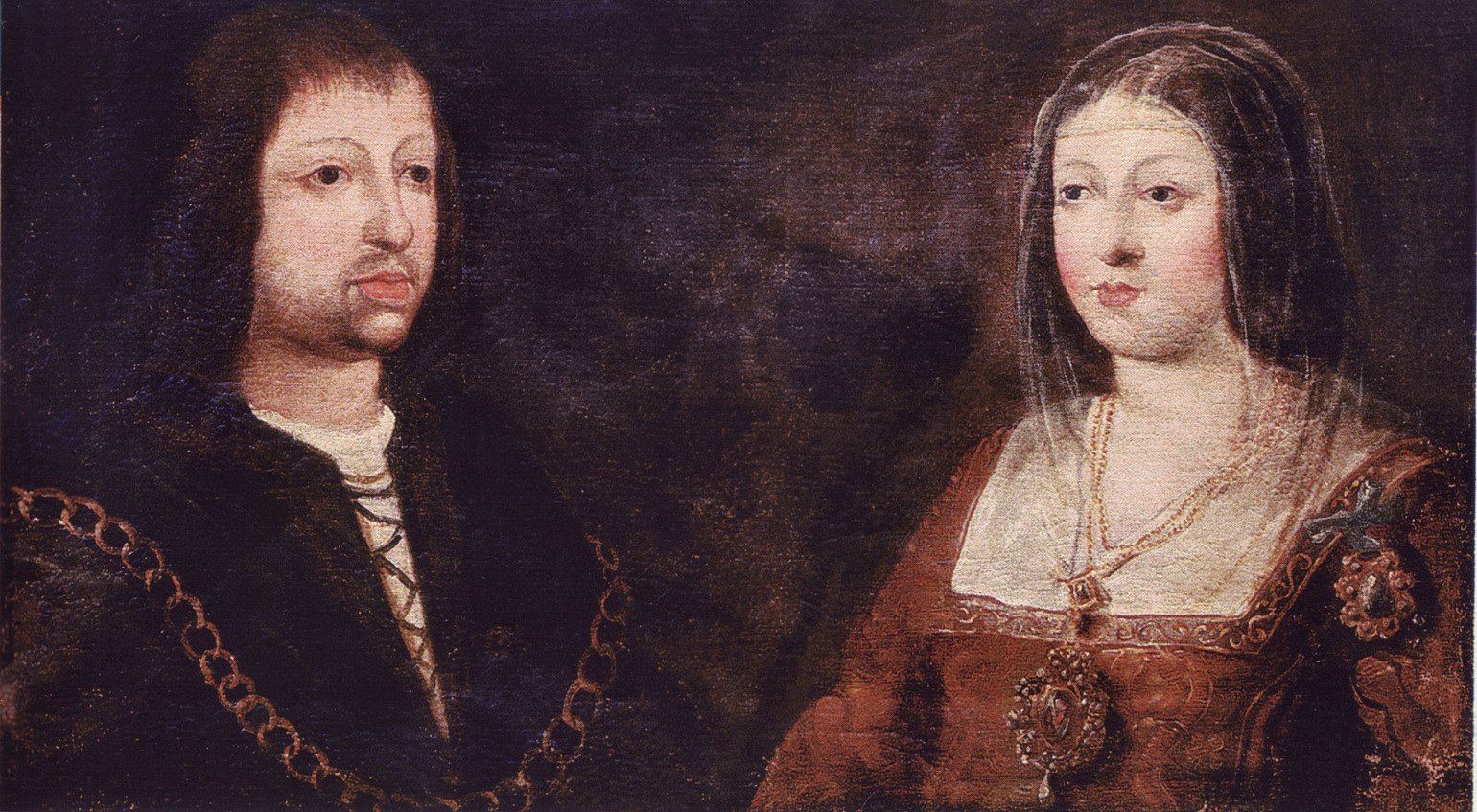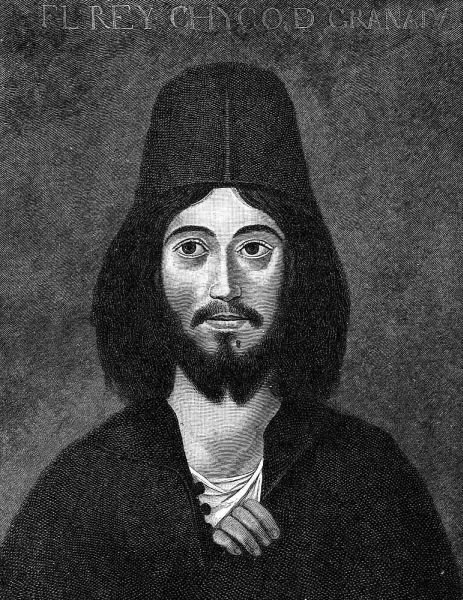Ferdinand and Isabella: Exploring the Catholic Monarchs’ Pivotal Role in History
Our novel, South of Sepharad, is set in Granada in 1492—a year most readers will recognize as the year Christopher Columbus set sail for the West Indies only to encounter an uncharted land that would become the Americas. Columbus’ journey was funded by Queen Isabella and King Ferdinand, the Catholic Monarchs of Spain. Readers will probably be much less familiar with the fact that the same year marked the end of the Granada War, a series of military campaigns between the Catholic Monarchs and the Nasrid dynasty's Emirate of Granada. It ended in defeat for the Nasrid dynasty and the annexation of Granada by the Kingdom of Castile. The victory by the Catholic Monarchs was followed almost immediately by the Alhambra Decree, an edict that exiled all Jews from Kingdoms of Spain or required their conversion to Catholicism. Ferdinand and Isabella made their mark on history.
Ferdinand and Isabella were married in 1469, prior to the unification of Spain. At the time Isabella was heiress presumptive to the Crown of Castile, and Ferdinand was heir apparent to the Crown of Aragon. The couple were actually second cousins, sharing a great-grandfather in King John I of Castile. Though it was illegal for them to marry under canon law, this obstacle was removed when they were given a papal dispensation from Sixtus IV. It was clear right away that their marriage was a highly choreographed political union with the goal of consolidating power and unifying Spain.
In 1474, upon the death of Henry IV of Castile, Isabella’s half-brother, Isabella was proclaimed Queen of Castile and León. However, Henry’s daughter Joanna la Beltraneja claimed the throne for herself. Joanna married King Afonso V of Portugal and the two then invaded Castile to claim the throne for themselves. Called The War of the Castilian Succession, it was fought from 1475 to 1479, it resulted in the defeat of Henry and Joanna and the signing of Treaty of Alcáçovas, which recognized Isabella and Ferdinand as sovereigns of Castile. The war also had the unintended effect of strengthening the alliance between Castile and Aragon. Upon the death of Ferdinand’s father John II of Aragon in 1479, Ferdinand became the King of Aragon. By 1480, the joint rule of Ferdinand and Isabella over a united Spain was an established fact.
With their political alliance, Ferdinand and Isabella were able to consolidate power and restore royal authority. One of their major policy goals was religious unification of the peninsula through militant Catholicism. This meant defeating the Muslim Nasrid dynasty and ending the Reconquista, a centuries-long set of military campaigns that Christian kingdoms waged against the Muslim kingdoms following the Umayyad conquest of Hispania. By recruiting soldiers across Europe, Ferdinand and Isabella launched a systematic campaign to take the kingdom piece by piece. In 1491, with Granada being the last stronghold of the Nasrid dynasty, Ferdinand and Isabella launched the siege of Granada. By the end of the year, Muhammad XII finally surrendered and on January 2, 1492, Isabella and Ferdinand entered Granada to receive the keys of the city and the principal mosque was consecrated as a church. Spain was unified.
With the end of the Reconquista, Ferdinand and Isabella moved quickly to expel all non-Christians from the region with the Alhambra Decree issued March 31, 1492. This is where the story of Vidal and his family in the novel South of Sepharad picks things up. After 1,500 years of a Jewish presence on the Iberian Peninsula, after living their entire lives in Granada, after burying their daughter in the graveyard of the Judería, Vidal and his family must suddenly decide whether to give up their faith and convert to Catholicism, or leave Granada forever.
A heroic, heart-breaking story of a father who holds tightly to his faith, his family, and his integrity all while confronting the grief of the past and the harsh realities of forced exile.
Vidal ha-Rofeh is a Jewish physician devoted to his faith, his family, and his patients. But, when Queen Isabella and King Ferdinand conquer Granada and sign an edict ordering all Jews convert to Catholicism or depart Spain in three months’ time under penalty of death, Vidal must choose between his faith and his homeland. Journeying in a caravan of 200 Jews to start their lives anew across the sea in Fez, Vidal struggles to care for the sick all while trying to mend strained relationships with his family. At the same time, his daughter back home finds herself exposed to the Spanish Inquisition living as a converso in a Christian empire.
Based on the true history of the 1492 Jewish Expulsion from Spain, South of Sepharad presents readers with a painful but important part of Jewish history as seen through the eyes of one Jewish family.




